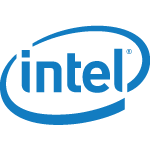Sebbene alcuni utenti un po’ troppo schierati, nei forum di mezzo mondo, si stiano stracciando le vesti per l’abbandono del mercato degli Smartphone da parte di Intel, i produttori di Smartphone e Tablet sembrano far semplicemente spallucce.

Senza far troppi giri di parole, i SoC Atom non si sono mai rivelati realmente concorrenziali, sia dal punto di vista prestazionale e delle feature (alla fine erano delle CPU x86 molto, molto piccole), sia dal punto di vista delle problematiche sollevate relative al supporto software (è vero che Intel aiutava direttamente gli OEM/ODM nella realizzazione di ROM e software x86 di Android, ma mantenere una linea ARM ed una linea x86 ha comunque un costo non indifferente anche per i produttori più importanti).
Per queste ragioni, una volta chiusi i rubinetti dei Contra Revenue per Smartphone e Tablet, quei pochi produttori che utilizzavano SoC Intel hanno lentamente, ma inesorabilmente, rimpiazzato i chip x86 con quelli ARM. Parliamo, in questo caso, di Acer e Asus. Quest’ultima, in particolare, non ha certamente versato alcuna lacrima a riguardo, soprattutto perché gli Zen basati su SoC Atom ormai ricoprono una risicata percentuale nelle vendite totali, come riporta il Taipei Times: “An Asustek official who declined to be named said Intel’s move is expected to only have a limited impact on Asustek’s smartphone segment, as the company has been reducing its use of Intel chips since the second half of last year”.
D’altra parte, i sussidi di Intel hanno aiutato Asus, tra il 2014 e il 2015, a ritagliarsi una buona posizione tra i produttori di Smartphone, in quanto poteva permettersi di vendere terminali dal buon hardware a prezzi decisamente concorrenziali (Qui uno studio riguardo i sussidi di Intel). Ora che Asus ha il suo mercato e che Intel era diventata un peso, l’ha bellamente scaricata: “Asustek’s smartphone business saw rapid growth in 2014 and last year, partly due to Intel’s subsidized sales of SoCs to Asustek ,which enabled the Taiwanese company to offer low retail prices for its smartphones while maintaining a healthy level of profitability, people familiar with the matter said. Since Intel withdrew its subsidy plan in the first half of last year, Asustek has gradually lowered its use of Intel chips in its smartphones and shifted focus to Qualcomm Inc and MediaTek Inc’s SoCs, the people said”. Quando non si è il pesce grande del settore, questo è solitamente quello che accade. Non esiste nessuna pietà, neppure se ci si chiama Intel.
D'altra parte Acer, poiché è attiva nel settore dei Tablet, sembra portare avanti i piani che attualmente ha con Intel, ma guarda comunque attentamente ad eventuali vie di fuga: “Acer said the company and Intel have been collaborating on a wide range of products for a long time, and its existing projects with Intel would remain unchanged.However, Acer said it would watch closely to see whether Intel’s planned decision would affect the Taiwanese firm’s product strategy, adding that products would be adjusted if necessary”. Vedremo come evolverà la situazione.
